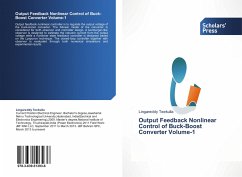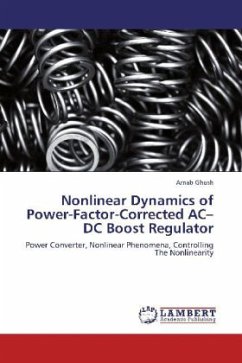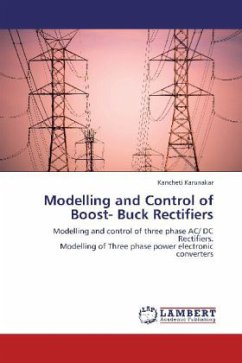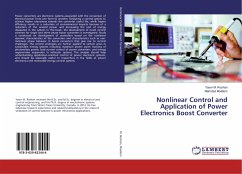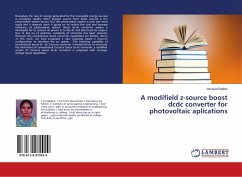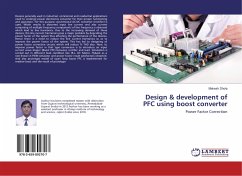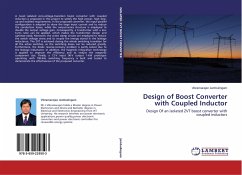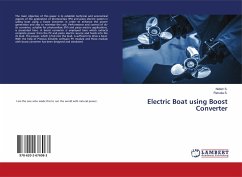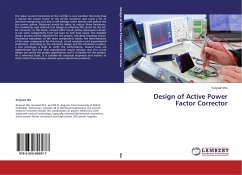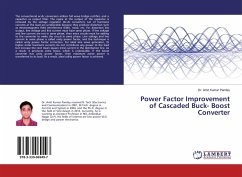
Power Factor Improvement of Cascaded Buck- Boost Converter
Versandkostenfrei!
Versandfertig in 6-10 Tagen
27,99 €
inkl. MwSt.

PAYBACK Punkte
14 °P sammeln!
The conventional ac-dc conversion utilizes full wave bridge rectifier, and a capacitor as output filter. The ripple at the output of the capacitor is removed by the voltage regulator (dc-dc converter). Lot of harmonic currents at the load are undesirable because they produce distortion such as electromagnetic field interference (EMI), noise, etc. For distortion less output, line voltage and line current must have same phase. If line voltage and line current are not in same phase, then extra circuits must be adding to the converter to make the circuit in same phase. Line voltage and line curren...
The conventional ac-dc conversion utilizes full wave bridge rectifier, and a capacitor as output filter. The ripple at the output of the capacitor is removed by the voltage regulator (dc-dc converter). Lot of harmonic currents at the load are undesirable because they produce distortion such as electromagnetic field interference (EMI), noise, etc. For distortion less output, line voltage and line current must have same phase. If line voltage and line current are not in same phase, then extra circuits must be adding to the converter to make the circuit in same phase. Line voltage and line current in same phase is called unity power factor, and the technique is called unity power factor correction. For ideal sine wave generator, its higher order harmonic currents do not contribute any power to the load but increase the root mean square (rms) current in the distribution line. As a result, it produces extra losses, which is undesirable. If the boost converter has unity power factor, then maximum active power is transferred to its load. As a result, ideal utility power factor is achieved.




